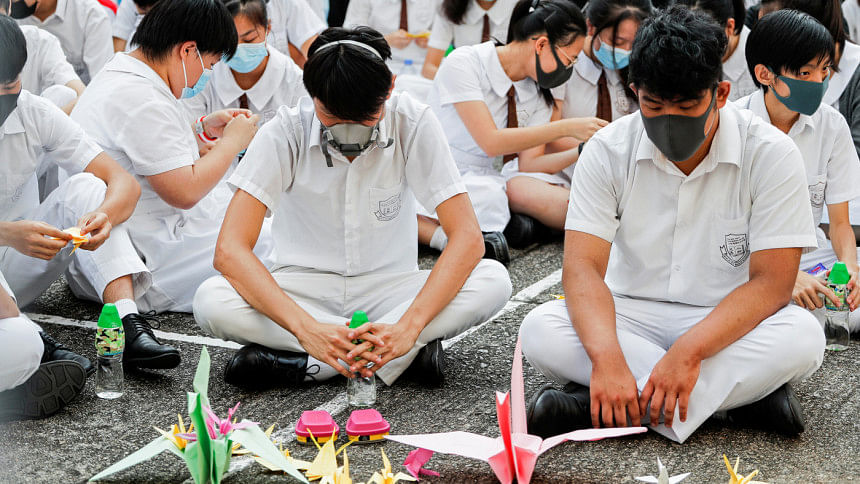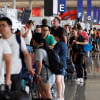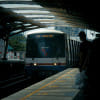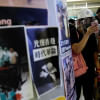Hong Kong mops up, braces for fresh protests

Hong Kong awoke to widespread damage today and calls for more protests following some of the most violent clashes in nearly four months of unrest, including the shooting of a teenage demonstrator by police.
Anti-government protests turned violent early on Tuesday and continued into the night, with intense cat-and-mouse skirmishes marring celebrations in Beijing to mark the 70th anniversary of the founding of the People's Republic of China on October 1.
Also read: HK erupts on China 'birthday'
Images of police firing tear gas and water cannon at petrol bomb-throwing protesters were beamed live to the world in areas spreading from the popular shopping district of Causeway Bay to the Admiralty area of government offices, over the harbour to Kowloon and beyond to the New Territories.
Secondary schools in Hong Kong were planning a mass class boycott on Wednesday in response to the point-blank shooting of an 18-year-old man that was captured in dramatic video footage.
Protesters have previously been hit with bean bags rounds and rubber bullets and officers have fired live rounds in the air, but this was the first time a demonstrator had been shot with a live round.
Police said the officer involved was under serious threat and acted in accordance with official guidelines. The man was conscious when taken to hospital, police added, but his condition was not immediately available on Wednesday.
MTR Corp shut nearly 50 stations to stop protesters moving around on Tuesday, making the rail operator once again a target of vandalism. Demonstrators have stepped up attacks on the MTR, which has been blamed for closing stations at the government's behest.
By early Wednesday, all metro stations were open although some lines were running slower than normal as MTR workers tried to repair damage to ready the service for the nearly 6 million people who use it every day.
Many stores and business had closed on Tuesday after demonstrators vowed to seize the opportunity on China's National Day to propel their calls for greater democracy onto the international stage.
The protests have plunged the former British colony into its biggest political crisis in decades and pose the gravest popular challenge to President Xi Jinping since he came to power.
The demonstrations have also taken a growing toll on the city's economy as it faces its first recession in a decade and comes as the central government is already grappling with a U.S.-China trade war and a global slowdown.
Protesters are angry about what they see as creeping interference by Beijing in their city's affairs despite a promise of autonomy.
China dismisses those claims and has accused foreign governments, including the United States and Britain, of fanning anti-China sentiment.

 For all latest news, follow The Daily Star's Google News channel.
For all latest news, follow The Daily Star's Google News channel. 







Comments